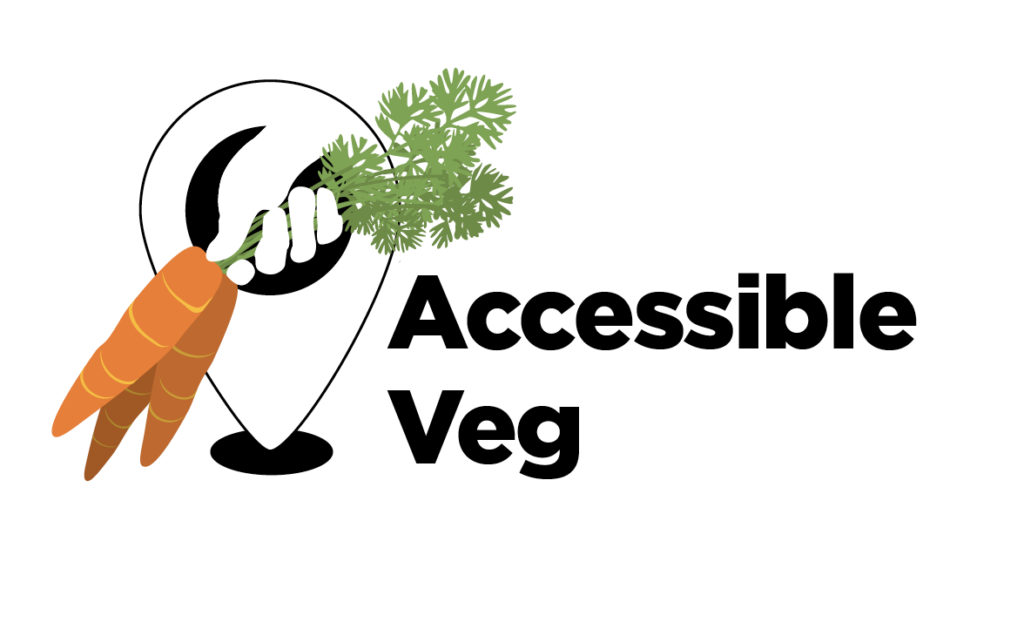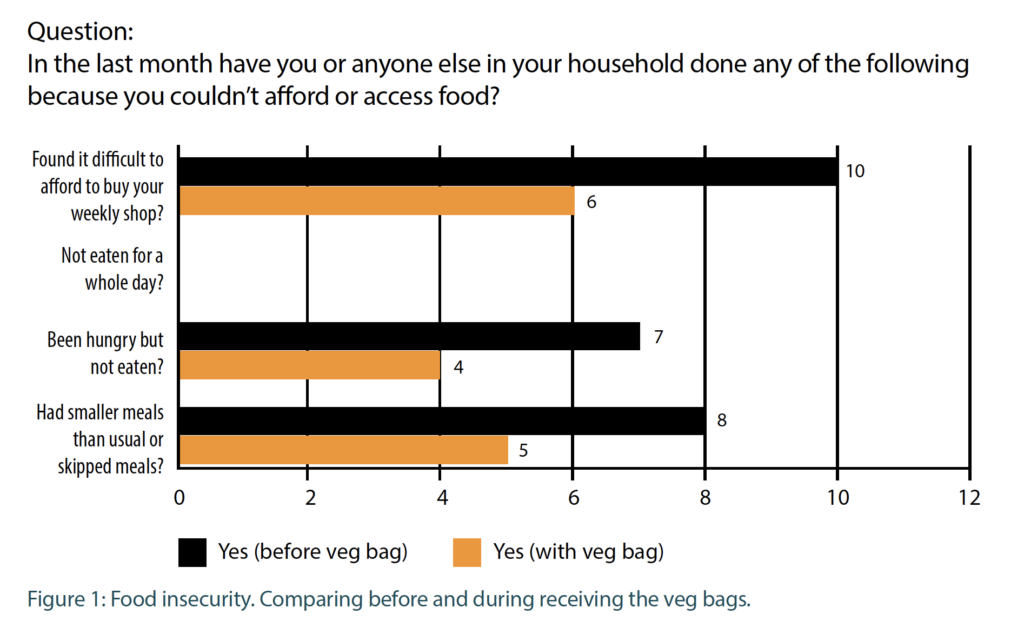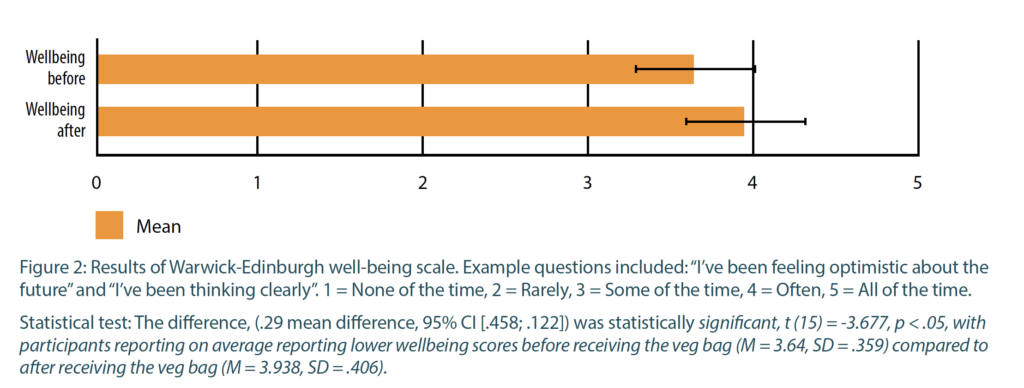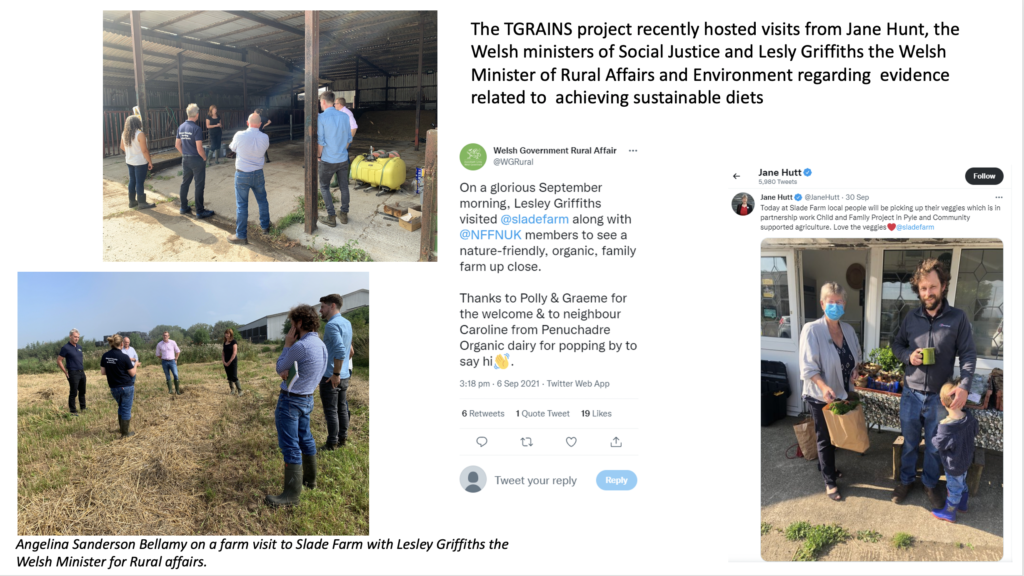
Based on project results showing the impact of CSA veg box schemes on healthy and sustainable diets, we set out to explore how to extend those benefits to food-insecure households in our pilot project launched in June 2021, with financial support from UWE Bristol, Cardiff University, WWF Cymru and Food Sense Wales. We are also collaborating with Dr Caroline Verfuerth at Cardiff University’s ESRC-funded Centre for Climate Change and Social Transformation.
The Accessible Veg Project explored the impact of CSA memberships to food-insecure households, with the following objectives:
- Identify barriers to CSA memberships and participation.
- Measure the impact of CSA membership on food-insecure households.
- Explore means for CSAs to implement solidarity models to make vegetable bags accessible for all.
In Accessible Veg, we worked with 4 CSA farms who expressed an interest in exploring solidarity models for making their vegetables accessible to food-insecure households. These farms are:
- Ash and Elm Horticulture, Llanidloes, Wales
- Glasbren CSA, Bancyfelin, Carmarthen, Wales
- Henbant CSA, Clynnogfawr, Caernarfon, Wales
- Slade Farm Organics, St Brides Major, Wales
Our farm partners were encouraged to partner with local food charities to help support their work with food-insecure households. The two charity partners who participated in the project were:
- Splice Child and Family Project, Bridgend
- Siop Griffits, Penygroes, Gwynedd
Thirty-eight households received a weekly veg bag for a period of 2-4 months. The research team interviewed participants and collected 3-day food diaries at the project start and prior to the end of the harvest season. Following the harvest period, we held a workshop for all four farm partners and 2 charity partners, to share project learnings with each other.
Accessible Veg Project results
You can download a copy of our report here.
Check out our new video sharing the success of CSA solidarity models and the benefits of making healthy and sustainable veg accessible to all in the community. You can access our video with welsh subtitles here.

Food security: Receiving the veg bags improved the food insecurity of participants.

Receiving the veg bag significantly improved the well-being of participants. In the pre and post-interviews, participants were asked a short well-being questionnaire. On average, participants reported higher well-being after receiving the veg bags, which was statistically significant
Interview responses highlight the powerful impact of being a part of the Community-Supported Agriculture (CSA) membership and the regularly-sustained positive communication within the community. Another key outcome from the project was the importance of community-scale partnerships in supporting and retaining food-insecure households in the veg bag schemes.
Accessible Veg project impact
The positive impact experienced by food-insecure households and the role of community-based food partnerships has captured the attention of Welsh Ministers and civil servants as we face the question of how best to support achieving multiple policy objectives around sustainability, climate change, health and food insecurity. Two separate visits by the Welsh Minister of Social Justice, Jane Hutt, and the Welsh Minister for Environment and Rural Affairs, Leslie Griffiths, were hosted by our farm partner, Slade Farm. We have also shared our findings with the Food Policy team in Welsh Government, in the context of their work to build the Community Food Strategy.

On July 11th, Jane Hutt, Minister for Social Justice chaired a Cost of Living Summit during which she announced a series of intervention packages, including financial support for cross-sector food partnerships in Wales.
This funding from Welsh Government is worth £3 million and will support the development of cross-sector food partnerships. The funding will also strengthen existing food partnerships that help build resilience in local food networks through the co-ordination of on the ground, food-related activity; help tackle the root-causes of food poverty; develop citizen action; maximise the effectiveness of projects and ensure that resources are targeted at areas of greatest need.
The funding announced yesterday comes after a Food Poverty Roundtable that was held in May which brought together a range of stakeholders to discuss the impact of rising food prices and energy costs on levels of food poverty. Feedback from this round table session helped to inform how the funding should be directed to more effectively support people experiencing food poverty and how Welsh Government can help to reduce and prevent the need for emergency food provision in the longer term. The Accessible Veg project has fed into these processes, hosted two visits by the Social Justice Minister to farm and charity partners, and spoke at the Roundtable and other events hosted by the Minister.
Accessible Veg project key policy recommendations
- Quick funding for small projects and initiatives and best practice projects. Small grants of up to £5000 that can be accessed quickly to help farms and/or charity partners to establish a solidarity veg bag scheme or other social innovation to circumvent barriers to participation for food insecure households. Initial funding enables CSAs to explore and implement the most productive and sustainable model of solidarity to implement for long-term provision of veg bags for food insecure households.
- Developing Sustainable Food Partnerships that support local partnerships between actors in the food systems, for example Sustainable Food Places Wales. Support and coordination of networks across the food and agriculture sector that facilitates better connections in the food system and links to the Community Food Strategy. To achieve this, a geographically categorised online network of community-scale food providers could be developed to assist organisations in finding collaborators and mentors. For example, stronger links between small scale horticulture projects and pilots could be linked with findings from this project. Some examples are partnerships between schools, local growers and Big Bocs Boyd or other food aid partners and local health boards.
- The use of Healthy Start vouchers for veg bags and further pilot projects that interlink health, community, environment, and agriculture. Again, this can be achieved through partnership building and a potential integration into the Healthy Start programme.
- Coordinating and funding links to existing Government policies. For example, Healthy Weight Healthy Wales could be supported by providing funding for linking local Health Board Plans and Nutrition Skills for Life with CSA schemes. Another example is the opportunity to use Welsh Government funding for poverty alleviation to support community-based food solidarity models or policies related to the Welsh Government’s Community Food Strategy.
- Sustainable funding commitment to provide long-term support for community-based initiatives and build consistent and stronger links to existing Government policies. By providing long-term grants for sustainability to organisations involved in community-scale supply chains, such as food hubs and CSAs, the Government can reduce administrative burden and loss of capacity and institutional knowledge owing to high turnover related to uncertainty experienced by organisations relying on small, short-term grants.
- Support and funding accessible to people that experience multiple vulnerabilities, often linked to poverty (e.g. food and fuel insecurity, mental health and physical health issues). Social prescribing and food vouchers that can be used towards CSA memberships can address both well-being and food insecurity.
Many of the above recommendations can be achieved through a few simple actions that make long-term, consistent funding commitments to build community-based partnerships that are capable of delivering health and well-being benefits for food insecure households, and thereby reducing the cost on the NHS for dietary- and mental health-related illnesses. As public health is a public good, community-scale supply chains could be approached using the ‘public money for public goods’ principle contained in the relevant Agricultural Bills across the UK and the Well-being of Future Generations Act (2015).
Implementing ‘public money for public goods’ payments for community-scale supply chain participants can create a source of long-term and secure funding for community growers, suppliers, distributors, and other organisations involved in local food provision services that result in improved environmental sustainability as well as positive public health outcomes. This policy approach can support a more diverse range of actors engaging in community-scale supply chains, generating more resilient consumption patterns that align with health, biodiversity, zero-emission policy targets and other non-food benefits.
Acknowledgements
We would like to acknowledge the students and research assistants who have also contributed to the work by developing and conducting interviews and processing interview data. They are: Will Bovington, Amy Dutton, Jane Oliver, Chiara Poletti and Weronika Tadrak.